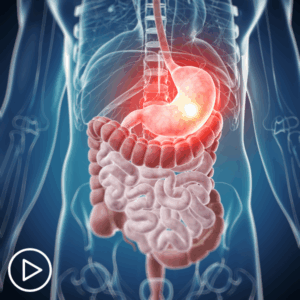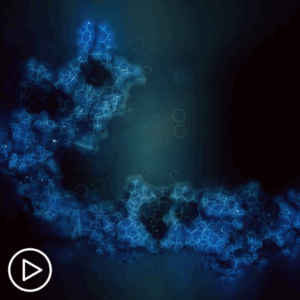Katherine:
Are there other decision factors involved in deciding on treatment options? You mentioned age, comorbidities. What else do you look at?
Dr. Janjigian:
Yeah, the other important factor as I said is nutrition. Being able to stay fit and stay independent is very important. Some of my patients ask me, and then they feel like what they eat is so important that as soon as they get their diagnosis, they restrict their diet. And then they start losing weight. And that’s not good. The number one negative prognostic factor is if you lose more than 10 percent of your body weight within the first few months of the diagnosis – because you get really weak, and then you can’t tolerate the chemotherapy. So, I tell the patients, “Your body will take from you whatever it wants. The cancer will take from you, from your body. So, you need to support yourself nutritionally.” So, if you don’t feel like eating a salad, but you are craving a cookie, it’s okay.
Have that cookie; just don’t lose weight. And I think that’s the number one. And also, the other factor is how do you communicate your diagnosis and your prognosis to your family and your friends? Because then everybody’s asking and making you in some ways anxious, your job. And what I tell patients is, “It’s on need-to-know basis.” If you find love and support, then you can tell people.
Otherwise, you can just loosely kind of mention that you need some help, and you’re going through treatment without specific details. And the great part about these combination immunotherapies is that a lot of our functional patients actually continue to work through this. And so, we fill out whatever forms they need for their jobs and so forth. But we have lawyers that are continuing to work, teachers, and sometimes even construction workers. So, really, I would say make decisions as they come up.
Don’t run too far ahead and sort of assume that you’re going to not be well. But if you want to take some time off, that’s okay too. And so, I think the treatment paradigm for this disease has evolved so much that there’s a lot of misconceptions. And I think the job of a good oncologist is to let the patient live their life in as normal a fashion as possible.
So, we work the chemo schedules around their schedule. Some of these immunotherapies you can give once a month. So, I have patients who will fly into see me, for example, get the dose, and then go back home. So, I think don’t be afraid to ask for what you need.
Related Resources
Transcript
Katherine Banwell:
Dr. Strickland, how do biomarker test results impact gastric cancer prognosis?
Dr. Matthew Strickland:
So, biomarkers will directly guide our treatment decisions in how we can assemble the best treatment plan for our patient as an individual. That will have direct ramifications for how well and for how long that therapy can work for.
So, I would say that there’s a direct correlation between the biomarker analysis to prognosis.
Katherine Banwell:
Dr. Strickland, how do biomarker test results impact gastric cancer treatment options?
Dr. Matthew Strickland:
So, for example, depending on the stage…if a patient has a stage IV cancer, PD-L1 expression will guide our treatment decision whether to include immunotherapy typically with a chemotherapy background or not. To say that a different way, if the expression is very low or absent, we know that patient likely will not benefit from immunotherapy and could actually be harmed, because there is some toxicity that comes with these treatments. That’s one example. But similarly for HER2+ patients, we’ll similarly assemble a treatment regimen with a targeted therapy that is included.
That certainly guides treatment options, specifically based on a HER2-positive result or negative. The next biomarker I want everyone to know about is called PD-L1. That stands for programmed death ligand 1. This is also a protein that’s expressed on the surface of cancer cells.
That usually leads to a better outcome than for patients that we can’t include a targeted therapy and left relying on chemotherapy only.
Katherine Banwell:
Dr. Strickland, what questions should patients ask their healthcare team about testing and test results?
Dr. Matthew Strickland:
Because biomarker status is so critical for treatment decisions and leading to outcomes and prognosis, I would encourage patients to ask their provider if all standard biomarkers have been obtained at the time of their diagnosis. Sometimes that answer is no, but they’re working on it. That’s okay. But I would highly encourage patients to just ensure that standard biomarkers are being tested for, that they will directly guide the treatment recommendations.
Katherine Banwell:
Dr. Strickland, is there developing research or treatment news that gastric cancer patients should know about?
Dr. Matthew Strickland:
I think it’s a very exciting time for the treatment of gastric cancer. Now, we still have a lot of work to do. I don’t want to minimize. This is still a tough and can be an aggressive cancer. It’s no time to let up.
That being said, if we use immunotherapy as an example alone, there’s been a flurry of new approvals for standard of care in the last three to four years. Our understanding is only increasing of how to select the right patients that will benefit as well as how to avoid some of the toxicities. Beyond immunotherapy, there are new and emerging targets that we can design targeted therapy for.
We don’t yet have mainstream approvals for targets like Claudin 18.2. But this is a very exciting new target that I think will lead to an approval in the short future.



